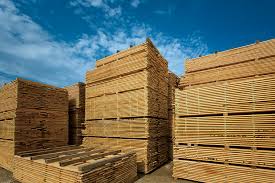

” Commercial Forestry” is much like any other farming practice. The crops are considered a renewable resource, used to make sawn timber, pulp, paper, poles, mining timber , matches, charcoal and cellulose – based products. Specific species of trees are planted, harvested and replanted in sustainable rotation. This ensures that there are trees at various stages of growth and maturity, ready to harvest for generations to come.
Forestry is more than the science of planting, managing and caring for timber plantations. It’s also about looking after the landscape which timber share with other animal and plant species as well as the people and communities that the Foresting and Forest Products Industries touches.
LOGGING
Logging is the process of cutting down and removing trees from the forest. In forestry, the phrase is used to describe log making, which includes cutting the branches off, removing the bark and cutting trees into parts. In some cases, logging may refer to the whole logistical process of felling, processing, removing and transporting trees from the forest to the sawmill.
LOGGING IMPORTANCE
Below are reasons why logging is important:
1. Minimizes competition for resources – Logging is important because it reduces crowding in the forest. Crowded trees must compete for nutrients such as sunlight and water. The younger and shorter trees may not receive the sunlight they need because of the overcrowding of the older trees.
2. Boosts the health of the trees – Logging can keep trees healthy. When logging, the parts of trees that have diseases are removed and the remaining trees can grow without the threat of any disease.
3. Provides necessary raw materials – Trees are a raw material and is important for our survival. They are useful in making furniture, supply materials for building homes, and are useful for making many everyday items. All of these things require logging.
4. Reduces forest fires – Logging helps to reduce forest fires. If there’s a lightning – triggered fire in a crowded forest, fire will spread rapidly, unlike when the trees have been thinned.
5. Enhances undergrowth – Selective logging is important, as it allows more sunlight and air to reach the forest floor, encouraging the growth of vegetation under larger trees.
Assistance for small – scale timber operations
The timber industry falls under the Department of Agriculture, Forestry and Fisheries (Daff), and to assist small – scale timber operations, the department has established the Forestry Enterprise Development (FED) Programme. The aim of the FED programme is to create opportunities for people to utilize forests indigenous forests, woodlands and plantations and forest – based resources for economic growth, income generation/ job creation in a manner that will take people from a subsistence livelihood system into the market economy
WANT TO KNOW MORE OR NEED ANY HELP WITH A PROFESSIONAL BUSINESS PLAN AND SERVICE CONTACT US NOW AT: (27) 84 583 3143 OR EMAIL US AT: money@global.co.za

